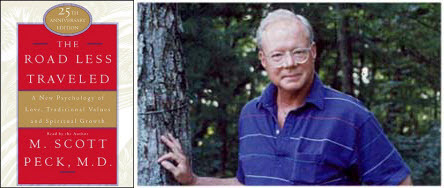Lee Ellis's Blog, page 349
May 1, 2013
On Leaders and Accountability (Part 5): Seven Tips to Celebrating the Big Payoff
 A momentous payoff has just occurred in your team as you’ve applied the guidance in this ongoing series of articles on accountability (previous articles links provided below)—your direct report has successfully accomplished his or her goal(s)! Things have gone well; as their leader, your expectations have been met and possibly exceeded.
A momentous payoff has just occurred in your team as you’ve applied the guidance in this ongoing series of articles on accountability (previous articles links provided below)—your direct report has successfully accomplished his or her goal(s)! Things have gone well; as their leader, your expectations have been met and possibly exceeded.
What Next?
So what do you do now? How do you celebrate? How do you affirm success? This is the time for you to come through by being accountable in your role as the chief motivator and affirmer in the organization. Although you may not innately be a motivator and affirmer, you know that it’s a critical element of team success.
Here are some tips to help you succeed in this area -
Be specific in your praise. Your goal is to be very specific in your affirmation; so before speaking, take time to reflect on what went well and what steps in the process made the work successful. Remember you want to recognize and “call out” what worked well so that you can reinforce the mindsets, behaviors, and attributes that you know will yield success again in the future.
“It’s been said that communications are 20% verbal and 80% non-verbal, so your energy, tone and body language are all going to play a big role in communicating genuine satisfaction.”
Be enthusiastic in your demeanor. It’s been said that communications are 20% verbal and 80% non-verbal, so your energy, tone and body language are all going to play a big role in communicating genuine satisfaction. It’s true—some people are naturally more expressive than others; so if being low key is part of your personality, then you’ll need to stretch your energy and emotions a bit. This may be your courage challenge and one you don’t want to fail. Regardless of where your natural level of enthusiasm falls, you will need to punch it up a notch to show your pleasure at the way things have turned out. A big smile, high fives, and good words of affirmation communicate positive emotions that inspire others with energy for the next challenge.
Debrief the mission. Set aside a few minutes to discuss what went right, what was learned, and what lessons can be used in the next challenging assignment. This is also a good time for you to ask for feedback on how helpful you were and what you might do in the future to better lead and manage your people and processes. Finally, be sure to listen for insights into the challenges your people are facing. You’ll want to reflect on those and see if there are organizational barriers or trends that you and your manager need to know about.
“Always keep in mind that one of your important leadership responsibilities is to develop your people.”
Consider the next challenge. Successful people are generally looking for their next challenge so be ready with a challenging assignment for the next step. Always keep in mind that one of your important leadership responsibilities is to develop your people. Be thinking about their next steps in their careers and how you can be preparing them for higher levels of responsibility.
Be fair and consistent in your affirmation. We humans have very sensitive egos and people notice what you are doing for others. They expect you to be at least as excited about their success as those of others. The way to nip office politics in the bud is to take care of the needs of each person individually as you work with them. Almost everyone is searching for validation at a very deep level to confirm that “My work has meaning; I’m valued; and I’m worth something.” Great leaders help people become successful and that means recognizing individual differences, helping people become successful and providing affirmation of their unique contribution.
“…some folks don’t want to celebrate because they are afraid—yes, afraid that if they celebrate people will quit working hard and lower the standards. I say don’t let your fear take you out.”
Evaluate your situation. Celebration is in a sad and pitiful state in many organizations. Many leaders are so busy they just knock down one goal and head on to the next one without taking time to celebrate. That’s an energy drain for the leader and the team. Also, some folks don’t want to celebrate because they are afraid—yes, afraid that if they celebrate people will quit working hard and lower the standards. I say don’t let your fear take you out. Have the courage (and wisdom) to celebrate and see what happens. I think you’ll be pleasantly surprised and that’s a nice thought, isn’t it?
Where are you now? Are you providing affirmation and enthusiastic positive feedback to your folks as they achieve their goals? Are you willing to ask your folks to give objective feedback on how well you are doing in this area? If you stop and reflect on this, what could you be doing to better affirm and value your people?
LE
*Past Articles in the Series:
- (Part 1) On Leaders and Accountability: Notes from the Cliff
- (Part 2) On Leaders and Accountability: Why It’s Crucial to Life and the Superbowl
- (Part 3) On Leaders and Accountability: Shocking Cheating Scandal at Harvard and Clarifying Expectations
- (Part 4) On Leaders and Accountability: How Mentoring and Coaching Builds Trust
——————–
Lee Ellis is Founder & President of Leadership Freedom LLC® & FreedomStar Media™.
He is a leadership consultant and expert in teambuilding, executive development & assessments
Email | LinkedIn | Web | Blog | Book | Facebook | Twitter
He is the author of Leading with Honor : Leadership Lessons from the Hanoi Hilton


April 23, 2013
The Latest Recommendation from Lee’s Bookshelf – “The Road Less Travelled” by M. Scott Peck, M.D. – Distinguishing Between Dependency and Love
Author and Leadership Consultant, Lee Ellis, said that he recently re-read this book for the third time! Great read for those leading others in their family, work, or community.
Here’s a quick summary of the book’s topic – “It helps us learn how to distinguish dependency from love; how to become a more sensitive parent; and ultimately how to become one’s own true self. Recognizing that, as in the famous opening line of his book, “Life is difficult” and that the journey to spiritual growth is a long one, Dr. Peck never bullies his readers, but rather guides them gently through the hard and often painful process of change toward a higher level of self-understanding.”
Learn more about the book and read reviews on Good Reads. Have you read this book? If so, please share your comments about it in this post -


April 15, 2013
When Businesses Grow But Leaders Don’t: The Conductor’s Role and Method
Have you ever thought of an organizational leader being a conductor of an orchestra? Or if you prefer, any type of team activity or sport creates the same set of principles.
As a small business entrepreneur, you’ve done most or all of the work yourself in your business. It was small enough that you could walk the hall or breakroom, give quick updates when needed, and then move on to the next task. Your system of communication was largely one-on-one, and systems aren’t important in this early stage because only a few people are doing the work. Think of this scenario as a small music ensemble—just a few people making beautiful music together. There isn’t even a conductor standing in front the group in the traditional sense, but there may be a lead position playing an instrument (sound familiar?).
Over time if you’re providing a great product or service, hopefully your business will grow. Your hard work is paying off with more business. At some point, though, you’ll face a barrier to future growth. You can’t do most of the work anymore, and there’s so much volume that you and your colleagues barely find time to talk with one another. New systems and processes must be put into place to achieve that next level of growth; otherwise, quality will suffer and your growth will stop (or even decrease).
“If you’re the leader of the organization, this is a critical moment in your career. Either you learn how to grow and prosper as a leader, or you delegate the leadership to a qualified individual.”
This is Your Moment
If you’re the leader of the organization, this is a critical moment in your career. Either you learn how to grow and prosper as a leader, or you delegate the leadership to a qualified individual. This new role may seem very alien and inefficient to you, but it’s essential that someone fill this spot.
Now the business has grown from a small music ensemble to a 100-piece orchestra. The leader can’t sit in the group and play as he’s done in the past. He/she must assume the role of standing in front and keeping the group on the same sheet of music (pun intended), keeping them on the same tempo, and ensuring that all parts are playing in harmony with one another.
Some Practical Principles
Here are just a few practical leadership lessons taken from my book, Leading with Honor –
Know Yourself – Know your personal strengths and struggles, and surround yourself with people that can balance your deficiencies.
Clarify and Build Your Culture – Creating a mission, vision, and values statement for your organization shouldn’t seem like a waste of time. This mission/vision/values musical score is the page that everyone will play from. It doesn’t have to be a complex set of statements, but it should make it clear who you are, how you do business, and what’s most important so that everyone in the organization has a clear understanding of expectations and results.
Over-Communicate the Message – If you believe that you’ve stated a point, process, or objective enough, you haven’t. Don’t needlessly have meetings for the sake of meetings, but find ways to disseminate information in multiple ways that fits with your culture. Also, make sure that the communication isn’t all top-down; it should be reciprocal, and the culture you’ve created should make it safe to do so.
Develop Your People – You must be in the business of developing your people just as much as the business itself. If someone needs more practice to perfect their part in the orchestra, give them the resources to do it and build in a method of accountability to hear what they’ve learned in the process. In an orchestra, the leader must teach them how to listen to each other.
Build Cohesive Teams – Create an atmosphere of collaboration instead of fear and self-preservation. Allow mistakes to be made, give supervisors the latitude to help their people, and incentivize all staff in a way that builds a closer team.
I hope that this doesn’t seem like an insurmountable task to you. Many of the leadership lessons that I’ve described above have been tested, proven, and implemented many times over. Find a successful organizational plan or successful business, and build on an existing strategy. Don’t re-create the wheel.
“Many of the leadership lessons that I’ve described above have been tested, proven, and implemented many times over. Find a successful organizational plan or successful business, and build on an existing strategy. Don’t re-create the wheel.”
You Can Do It
As you begin for create your own plan incorporating the lessons above, the over-arching leadership lesson that must be applied is courage—that is, doing what you know is right even though it doesn’t feel natural and safe. There will always be some element of risk in building your business, but being risky within a set of guidelines and principles is much better than being reckless with no plan or direction. Once the orchestra begins playing a piece of music, it takes courage to keep going. They can’t stop and must press through with confidence, watch the conductor, listen and communicate with each other, and collectively give the audience the best performance possible based on their passion, skill, training, and experience.
You can grow as a leader of expanding business. Put the right pieces into place, and enjoy the fruits of your labor. Trust me—you’ll have a team that can enjoy it with you and have the trust and confidence to follow no matter what challenges you face.
LE
——————–
Lee Ellis
is Founder & President of Leadership Freedom LLC® & FreedomStar Media™.
He is a leadership consultant and expert in teambuilding, executive development & assessments
Email | LinkedIn | Web | Blog | Book | Facebook | Twitter
He is the author of Leading with Honor : Leadership Lessons from the Hanoi Hilton


April 3, 2013
On Leaders and Accountability (Part 4): How Mentoring and Coaching Builds Trust
In part 3 on accountability, we talked about the importance of clarity–making sure people are clear about expectations and gaining alignment in everything including mission, vision, values, standards, your peculiar worldview, and the specific goals to be accomplished.
In surveying more than 300 leaders from Fortune 500 companies, I learned that two of the attributes they valued most from their leaders were “They supported me.” and “They helped me develop.” Thus, some of the most important aspects of leading people toward success–the ultimate goal of accountability–are mentoring and coaching.
Mentor by Example
It’s more important than you can imagine to lead by setting a good example of the behaviors you want to see in others. Leaders actions speak much louder than their words, and those that demonstrate the following characteristics set the standard without having to say a word –
Respect
Collaboration
Teamwork
Commitment to Precise Execution
Likewise you’ve noticed that the habits of bad leaders (and bad parents) are often replicated by those who come behind them. As is often the case with children, the rule of “monkey see, monkey do” plays out in the workplace. It’s hard to be good role model, and it’s one of the greatest challenges of leadership.
“As is often the case with children, the rule of ‘monkey see, monkey do’ plays out in the workplace. It’s hard to be good role model, and it’s one of the greatest challenges of leadership.”
Recently while sitting in with a group of senior HR managers in a Fortune 500 company, I listened to a discussion about a particular manager in the company whose behaviors were routinely rude and bullying.
Surprisingly, the senior VP spoke up and shared the shocking comment, “I used to behave like that routinely.”
Heads snapped around with looks of disbelief and even some comments like, “No way.”
But the courageous VP came back, “Oh yes I did. That’s how my first boss operated, and so I thought that’s the way leaders behaved. Eventually, another boss saw what I was doing, got my attention, and then mentored me on the power of respecting others. I learned that I could be kind and firm to get much better results.”
Your example as a leader sets the context and boundaries for accountability. You’re modeling what you want to see in others, and you’ll reap what you sow.
Coach from Your Experience
Typically, leaders have accrued knowledge and honed skills that need to be passed along. It’s the most effective way to increase productivity and build confidence in others. It takes time and patience, but this kind of support of a leader is powerful. The best athletes in the world have coaches, so it makes sense that coaching in the workplace is also crucial to high productivity.
“The best athletes in the world have coaches, so it makes sense that coaching in the workplace is also crucial to high productivity.”
Many years ago as a young Air Force officer, I was assigned to a major command headquarters in my first staff job. To put it mildly, this flyboy was inexperienced and still ignorant about staff work. It was a workplace highly populated with colonels and generals, so the margin for error was slim. Unfortunately, my immediate boss seemed quite disengaged from work of any kind. He was either clueless or scared of messing up, because he seemed to always be hiding and not helping at all. Fortunately, a seasoned veteran took the time to coach me as I faced new challenges. The skills he taught me about staff coordination and collaboration kept me ahead of the curve and really laid the foundation for much of the work I’ve done in my career ever since.
Sure, we need to learn some things by trial and error, but in a demanding, fast paced workplace, accelerated learning means success for both the individual and the organization. I could’ve learned by trial and error, and I did some of that; but mostly I was mentored and coached by a very busy person who cared enough to spend a few minutes here and there to show me the ropes in my first staff rodeo.
Now you may be thinking, “I thought this blog series was about accountability, but it seems like you’ve turned it into a focus on development.” Let me share a couple of thoughts on that –
Always remember that every person is unique. Some people will need more of your time and support and some will need less. Figuring that out is part of your job.
You should always be developing and positioning your people toward success. Sometimes that means supporting them with mentoring and coaching and sometimes it may mean standing back and watching them explore on their own. It’s easy to stand back; it takes more commitment and initiative to get involved and own your part of this accountability equation.
Look at the entire process of accountability as a journey–we’re moving down a path that gives the best results for you–the leader, your followers, and the organization.
Consider your mentoring in light of the example you set. Are you modeling the behaviors you expect in others? Do you walk the talk of your values? Regarding coaching, do you focus on the assignments and capabilities of each person uniquely? How are you bringing them along to be as skilled as or even more so than you?
For the next article in this series, we’ll dig in on the good, the bad and the ugly of accountability. And most of the time it gets ugly, because we as leaders have all stumbled somewhere in the journey before it gets to a bitter end. Let’s get it right the first time.
LE
*Past Articles in the Series:
(Part 1) On Leaders and Accountability: Notes from the Cliff
(Part 2) On Leaders and Accountability: Why It’s Crucial to Life and the Superbowl
(Part 3) On Leaders and Accountability: Shocking Cheating Scandal at Harvard and Clarifying Expectations
——————–
Lee Ellis
is Founder & President of Leadership Freedom LLC® & FreedomStar Media™.
He is a leadership consultant and expert in teambuilding, executive development & assessments
Email | LinkedIn | Web | Blog | Book | Facebook | Twitter
He is the author of Leading with Honor : Leadership Lessons from the Hanoi Hilton








